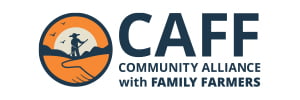 Yesterday the White House announced that farmers may begin applying for direct payments as part of the Coronavirus Food Assistance Program (CFAP) through their local Farm Service Agency (FSA) office starting May 26. Announced last month by the Secretary of Agriculture, the CFAP federal aid package includes $16 billion for direct payments to farmers who face pandemic-related losses.
Yesterday the White House announced that farmers may begin applying for direct payments as part of the Coronavirus Food Assistance Program (CFAP) through their local Farm Service Agency (FSA) office starting May 26. Announced last month by the Secretary of Agriculture, the CFAP federal aid package includes $16 billion for direct payments to farmers who face pandemic-related losses.
If you are a farmer or rancher whose operation was directly impacted by the coronavirus pandemic between January 15 and April 15, and you had to destroy products, shipped products that you were not paid for, or experienced declines in prices, visit www.farmers.gov/cfap where you can learn more about eligibility, how much the government will pay, and how to apply. If you determine that applying is worthwhile, you should immediately contact your local FSA office. As with all federal aid packages, the sooner you apply, the better your chances.
###
A NOTE from CAFF on CFAP Shortcomings & Small Farms: While we recognize that this program will provide a much-needed boost to many struggling farms, we must also acknowledge that it falls short of adequately supporting smaller-scale, diversified farms selling into local markets. If you fit this description, you may find this program more suited to larger, single-crop, commodity-type farms and you may want to consider whether the effort of applying is worth your time. If you are producing a specialty crop or livestock product that is not on the USDA’s list and you think it is worth applying for payments, please contact CAFF and we will advocate for USDA to add it.
Despite the advocacy of groups like CAFF and our national alliance NSAC, we continue to see federal aid packages like the CFAP fail to reach smaller, family farms. New stimulus packages are right now taking shape in Washington D.C. and we vow to continue this fight. But as policymakers direct billions of tax-payer dollars toward relief programs, now more than ever we must raise our voices. The cost is simply too high for communities like ours not to unite, act collectively and demand a seat at the table.
And to those who’ve supported our grassroots efforts speaking up for family farmers, thank you.
###

